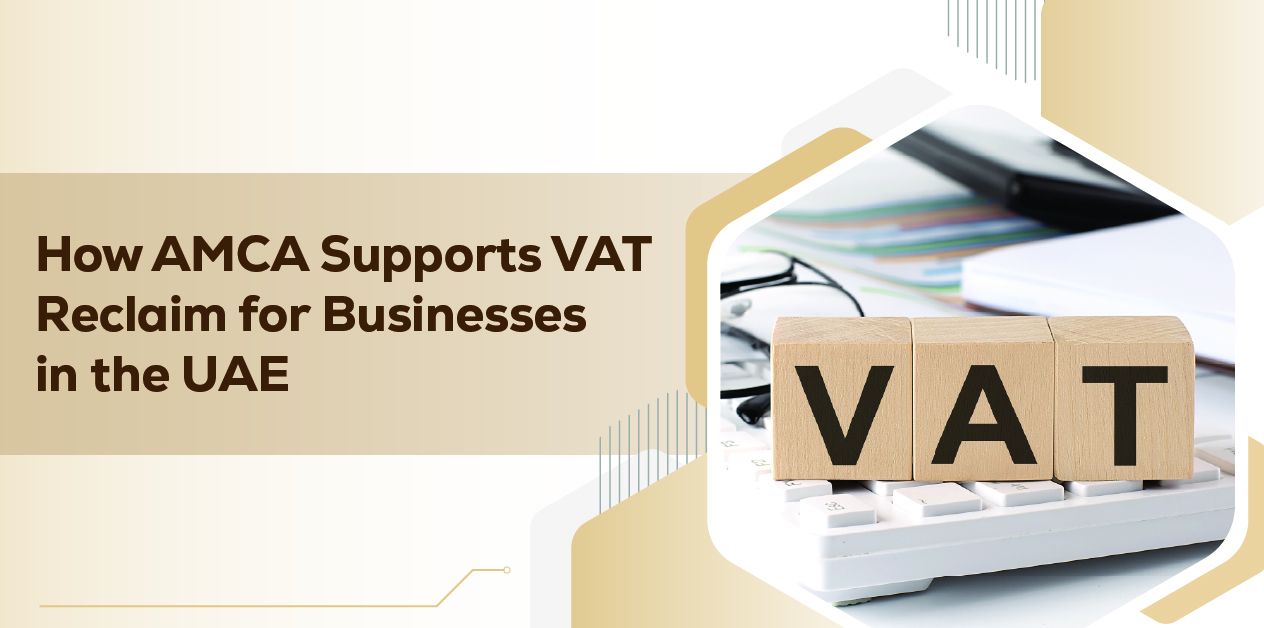
01 Sep 2025
When a business in the UAE decides to shut down, the process involves more than just closing its doors. One of the most important steps is submitting a Final Liquidation Report VAT that meets the FTA requirements. Non-compliance can lead to delay, penalty, or rejection of the liquidation of the company.
In this blog, we will explain the essential rules, obligations, and best practices for businesses that want to close smoothly while ensuring VAT compliance.
Why VAT Matters in Liquidation
VAT has been a cornerstone of the UAE’s tax framework since its introduction in 2018. Even when a company is shutting down, VAT rules continue to apply. Businesses must prove that they have filed all required returns, settled outstanding liabilities, and deregistered from VAT before liquidation can be approved.
This makes VAT compliance a critical step in the liquidation process. Companies that overlook VAT obligations may face delays in completing their closure or could even remain legally liable after operations have ceased.
Submitting Your FTA Liquidation Application
The liquidation process begins when the company or its liquidator submits an FTA liquidation application. This application informs the authorities that the business intends to wind up operations and must be supported by complete financial and tax records.
The FTA requires proof that all pending VAT obligations have been settled before it will approve liquidation. This includes filing final VAT returns, clearing unpaid dues, and confirming the company will no longer be a taxable entity. A complete and compliant application prevents rejection and ensures faster approval.
Steps for Filing the Final VAT Return
Understanding how to file a final VAT return in the UAE is essential for every business going through liquidation. The final return covers the period from the last VAT filing until the date of deregistration.
The process typically involves:
1. Logging into the FTA e-Services portal.
2. Preparing the final return with accurate taxable sales, purchases, and VAT collected.
3. Ensuring all input and output VAT entries are correctly reported.
4. Settling any outstanding liabilities immediately.
Once filed, this return acts as proof that the company has met its last VAT obligations, which is necessary for liquidation approval.
Closing VAT Registration in the UAE
Another key step in liquidation is closing VAT registration in the UAE. Companies are supposed to apply formally for deregistration from VAT once they stop taxable operations. The FTA provides an online portal through which liquidators can submit an application for deregistration by offering supporting documentation, such as a trade license cancelation or liquidation certificate.
VAT deregistration is not automatic. The FTA will only approve deregistration after confirming that the business has no pending liabilities or compliance issues. Without this step, the company remains legally responsible for VAT, even after ceasing operations.
VAT Compliance During Liquidation
Ensuring VAT compliance during liquidation requires attention to detail. Companies must ensure:
• All VAT returns up to the final date of operation are filed.
• Any penalties, if applicable, are settled.
• Clear evidence of ceased operations is provided.
• Accurate financial records are maintained for auditing purposes.
Many businesses underestimate this requirement and face rejection when their liquidation reports are incomplete. A professional advisory can help businesses avoid mistakes and meet all compliance requirements on time.
VAT Deregistration in UAE – Why It’s Crucial
The process of VAT deregistration in the UAE is one of the most critical milestones in the liquidation journey. If deregistration is delayed, the firm still has to pay tax returns and fines. In some cases, deregistration requests have been rejected because the firm had outstanding returns or hadn't filed required documents.
This is why companies are strongly advised to start the deregistration process early during liquidation. Doing so ensures that the liquidation report is accepted without additional delays.
Importance of VAT Compliance in the UAE
Even after liquidation, businesses must comply with VAT compliance UAE requirements for maintaining proper financial records. The FTA insists on record keeping over years even after the business has been wound up. This is to allow openness and make it possible for authorities to audit past transactions whenever necessary.
Failure to keep records can result in penalties and legal problems even when the company is wound up. Businesses should therefore secure copies of all VAT-related documents before submitting their final liquidation report.
Understanding FTA VAT Guidelines
The FTA VAT guidelines provide detailed instructions for businesses, covering everything from VAT registration to deregistration. During liquidation, these guidelines are fundamental as they outline the clauses required in the final liquidation report.
For example, the report must confirm that the company has ceased all activities and will not engage in taxable transactions for at least 12 months. It must also confirm that all VAT returns have been filed and liabilities settled. Aligning with these guidelines ensures smoother approval from the FTA.
How to Close a Company in Dubai with VAT Compliance
If you are wondering how to close a company in Dubai, the process involves multiple steps, and VAT compliance is one of the most important. The general steps include:
1. Appointment of a licensed liquidator.
2. Preparation of liquidation documents, including the final liquidation report.
3. Settling all outstanding debts, taxes, and employee dues.
4. Filing VAT deregistration with the FTA.
5. Submit the liquidation application with the required statements.
Ensuring that VAT requirements are handled correctly prevents unnecessary delays and allows the business to close in full compliance with UAE law.
Company Liquidation in the UAE – A Comprehensive Approach
Navigating company liquidation in the UAE requires a comprehensive approach. It is not just shutting down operations but also showing compliance to the authorities. Ranging from employee settlement and revocation of trade licenses to VAT deregistration and tax clearance, every step has to be performed effectively.
Companies ignoring VAT requirements during liquidation are greeted with denial and prolonged delays. On the other hand, companies that go through liquidation in a strategic way with professional assistance realize a compliant and smooth closure.
Closing Your Business the Right Way with VAT Compliance
Ensuring VAT compliance in Final Liquidation Reports is not just a formality—it is a legal requirement that determines whether your company can successfully close. From filing the final VAT return to deregistering with the FTA, every step must be completed with precision.
At AMCA Auditing, we specialize in helping businesses navigate the complexities of VAT compliance during liquidation. Our experts handle VAT deregistration, final return filings, and preparation of liquidation reports in complete alignment with FTA guidelines.
FAQs
1. What happens if I don’t file a final VAT return during liquidation?
Your liquidation report will likely be rejected, and the FTA may impose penalties until all returns are filed.
2. How long does VAT deregistration take in the UAE?
The process usually takes up to 20 business days, provided all returns are filed and dues are cleared.
3. Do I still need to maintain VAT records after liquidation?
Yes. Businesses must maintain financial records for several years as required by the FTA, even after liquidation.
4. Can I submit my final liquidation report without VAT deregistration?
No. VAT deregistration approval is a mandatory part of the liquidation process.
5. Why should I consult professionals for VAT compliance during liquidation?
Because liquidation involves complex legal and tax requirements, professional support ensures you avoid errors, delays, and penalties.



